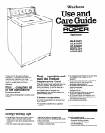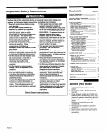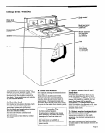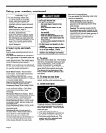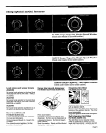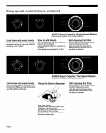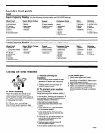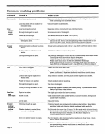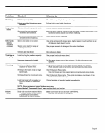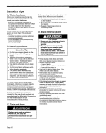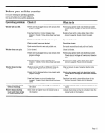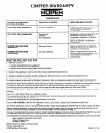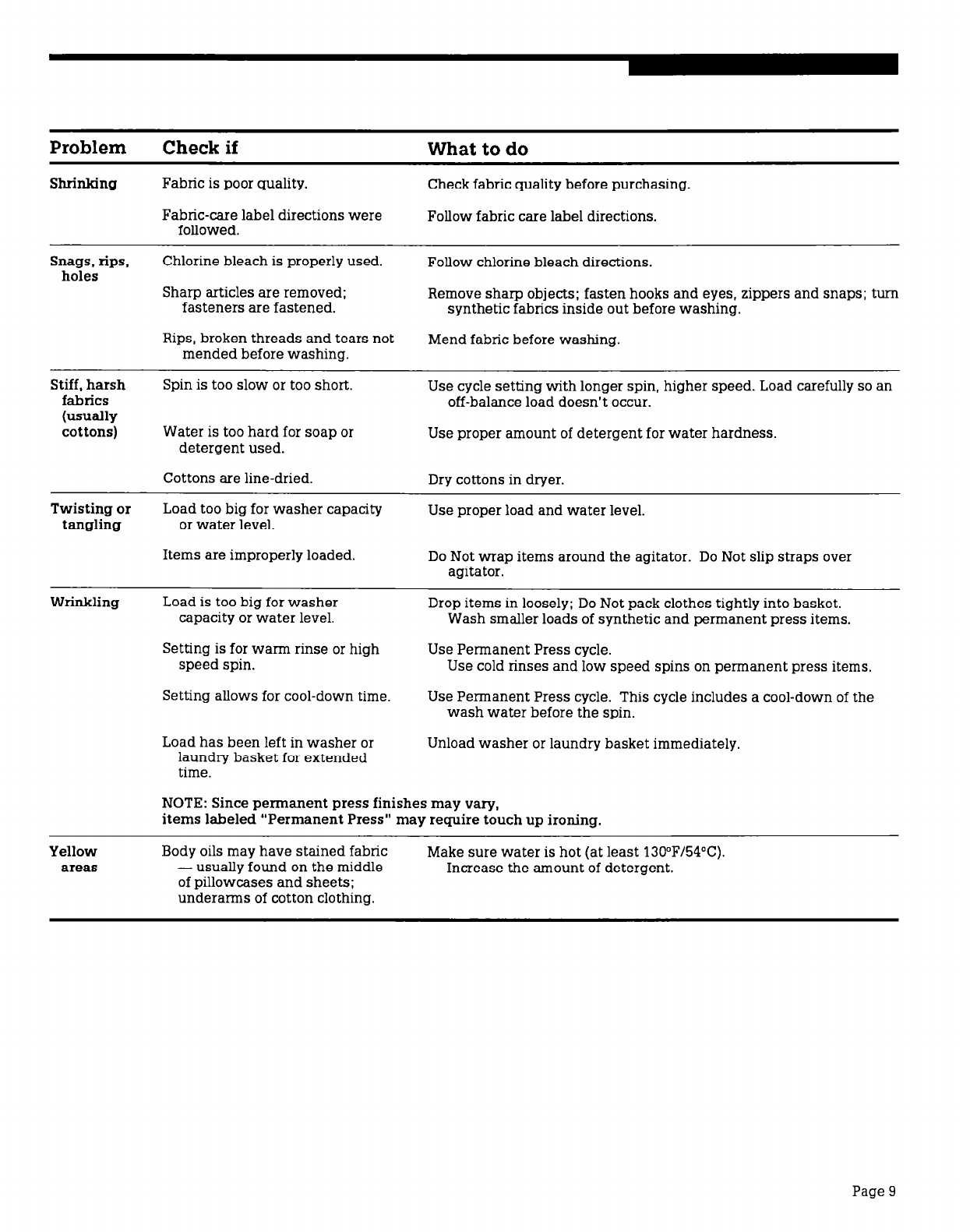
Problem Check if
What to do
Shrinking
Fabric is poor quality.
Fabric-care label directions were
followed.
Check fabric quality before purchasing.
Follow fabric care label directions.
Snags, rips,
holes
Chlorine bleach is properly used.
Sharp articles are removed;
fasteners are fastened.
Rips, broken threads and tears not
mended before washing.
Follow chlorine bleach directions.
Remove sharp objects; fasten hooks and eyes, zippers and snaps; turn
synthetic fabrics inside out before washing.
Mend fabric before washing.
Stiff,
harsh
fabrics
(usually
cottons)
Spin is too slow or too short.
Water is too hard for soap or
detergent used.
Use cycle setting with longer spin, higher speed. Load carefully so an
off-balance load doesn’t occur.
Use proper amount of detergent for water hardness.
Twisting or
tangling
Cottons are line-dried.
Load too big for washer capacity
or water level.
Items are improperly loaded.
Dry cottons in dryer.
Use proper load and water level.
Do Not wrap items around the agitator. Do Not slip straps over
agitator.
Wrinkling
Load is too big for washer
capacity or water level.
Setting is for warm rinse or high
speed spin.
Setting allows for cool-down time.
Drop items in loosely; Do Not pack clothes tightly into basket.
Wash smaller loads of synthetic and permanent press items.
Use Permanent Press cycle.
Use cold rinses and low speed spins on permanent press items.
Use Permanent Press cycle. This cycle includes a cool-down of the
wash water before the spin.
Load has been left in washer or
laundry basket for extended
time.
Unload washer or laundry basket immediately.
NOTE: Since permanent press finishes may vary,
items labeled “Permanent Press” may require touch up ironing.
Yellow
areas
Body oils may have stained fabric
- usually found on the middle
of pillowcases and sheets;
underarms of cotton clothing.
Make sure water is hot (at least 130°F/54”C).
Increase the amount of detergent.
Page 9



